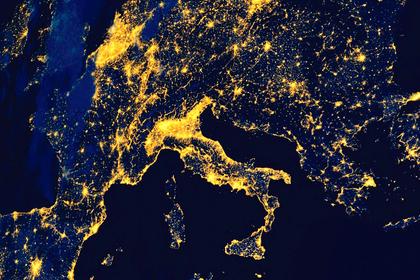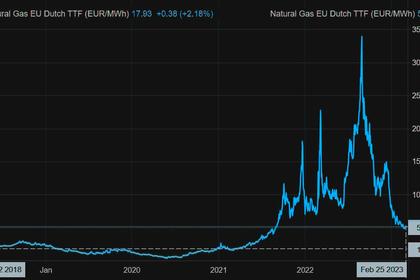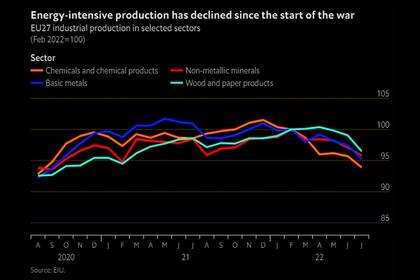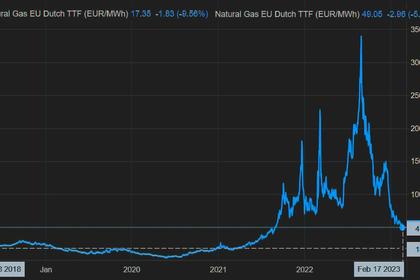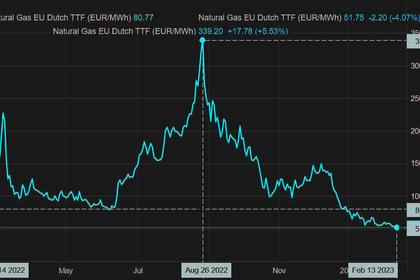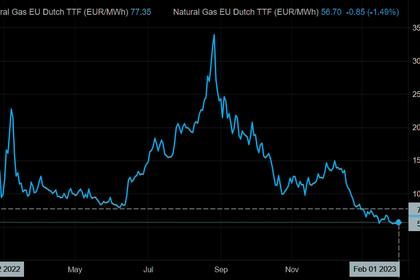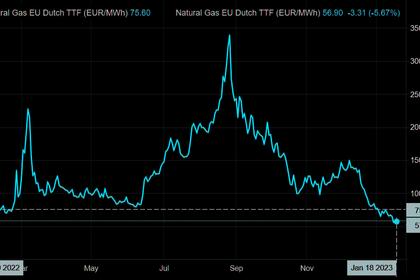
EUROPEAN ENERGY CHANGES
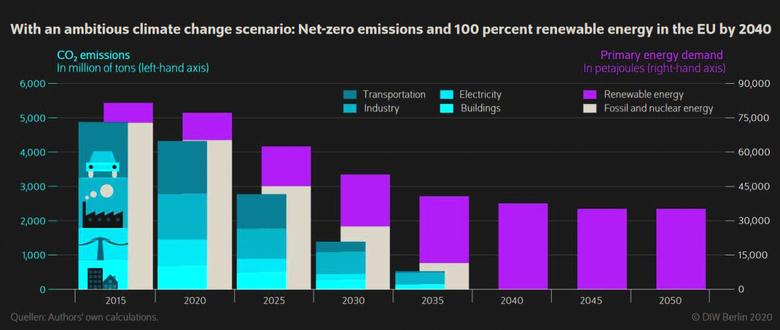
BLOOMBERG - Mar 14, 2023 - The European Union aims to prevent excessive swings in energy prices with a reform of its electricity market, its energy chief said, part of a broader plan to bolster competitiveness while shifting to a greener economy.
Changes to the EU’s common electricity market being proposed Tuesday should reduce energy costs and boost the competitiveness of the bloc’s economy, Energy Commissioner Kadri Simson said in an interview with Bloomberg News.
“This reform is the final piece to tackle the electricity crisis,” Simson said Tuesday. “The market is currently too dependent on short-term price signals and that puts our consumers in a vulnerable position, where they did not have access to the benefits of low-cost renewables.”
As the EU pushes more broadly to bolster clean energy, it’s also responding to concerns that green industries could emigrate to the US and China, with the price that Europe pays for its energy a driving factor. To counter subsidies the US is providing to domestic clean-tech manufacturers in its Inflation Reduction Act, the EU’s executive arm is planning to unveil on Thursday a regulation that would ease permitting and prioritize the growth of clean technologies.
The proposed reform aims to:
- Weaken the link between gas and power prices
- Reduce price swings
- Allow governments to offer regulated prices to households and small companies in times of crisis
- Spur development of renewable energy
- Use more stable long-term contracts
- Use more regional electricity hubs to pool bids and offers across a wider area and boost liquidity
Dealing with high energy costs topped the 27-nation bloc’s political agenda, with governments agreeing on a set of emergency measures to prevent companies from cutting output and avoid backlash from voters. Last year, national leaders called on the European Commission to propose a more structural fix of the market that would help better reflect the growing share of clean energy under the EU’s shift to a sustainable economy and the shrinking amount of cheap gas from Moscow.
The overhaul’s top objectives include shielding consumers from soaring costs, spurring the development of renewable energy and weakening the link between power and volatile gas prices after a cut in supplies from Russia.
Under the current EU electricity market design, gas sets the price for all power that’s sold into the market. That means consumers are bearing the brunt of Russia’s supply cuts to the continent after its invasion of Ukraine, and their bills don’t reflect the growing share of low-cost renewables like wind farms that get to sell at big margins.
Many companies, governments and researchers were calling for a cautious approach to reforming the system, warning that too much intervention could disrupt the flow of energy across the region, drain market liquidity in the short-term and potentially deter the rollout of renewables. Under the proposal adopted by the commission, the short-term marginal pricing model won’t change, but the bloc will seek to promote the growth of longer-term, stable contracts.
“The short-term pricing model has delivered free flows of electricity under very extreme circumstances, helping us avoid the risks of blackouts,” Simson said. “I hope there will be consensus that by addressing long-term markets we can keep benefits of the existing design while allowing consumers to benefit from the larger share of renewables.”
The commission is planning to weaken the link between gas and power by an increased use of power purchase agreements and so-called contracts for difference, where governments can guarantee investors a fixed price. Under the reform, public support for low-carbon energy projects would be structured as “two-way” contracts for difference, which set a minimum and a maximum price, so any revenues above the ceiling are paid back. The rule would apply to new investments in generation of solar, wind, geothermal, hydropower and nuclear energy.
Even with more fixed-price contracts for new power generation, it will be difficult to sever the link between gas and electricity prices. Many existing stations will be unwilling to take up contracts for difference, and Europe still needs gas as a transition fuel to move away from coal. Germany, Europe’s biggest economy, is planning to build 25 gigawatts of new gas-fired power capacity to replace coal and nuclear.
The measure will need support from the European Parliament and national governments, a potentially lengthy process that will involve amendments. Simson said that companies and consumers could benefit from the reform already during the next heating season if the negotiators act quickly.
“I hope that by prioritizing this proposal, we will be able to move faster,” she said.
-----
Earlier:
